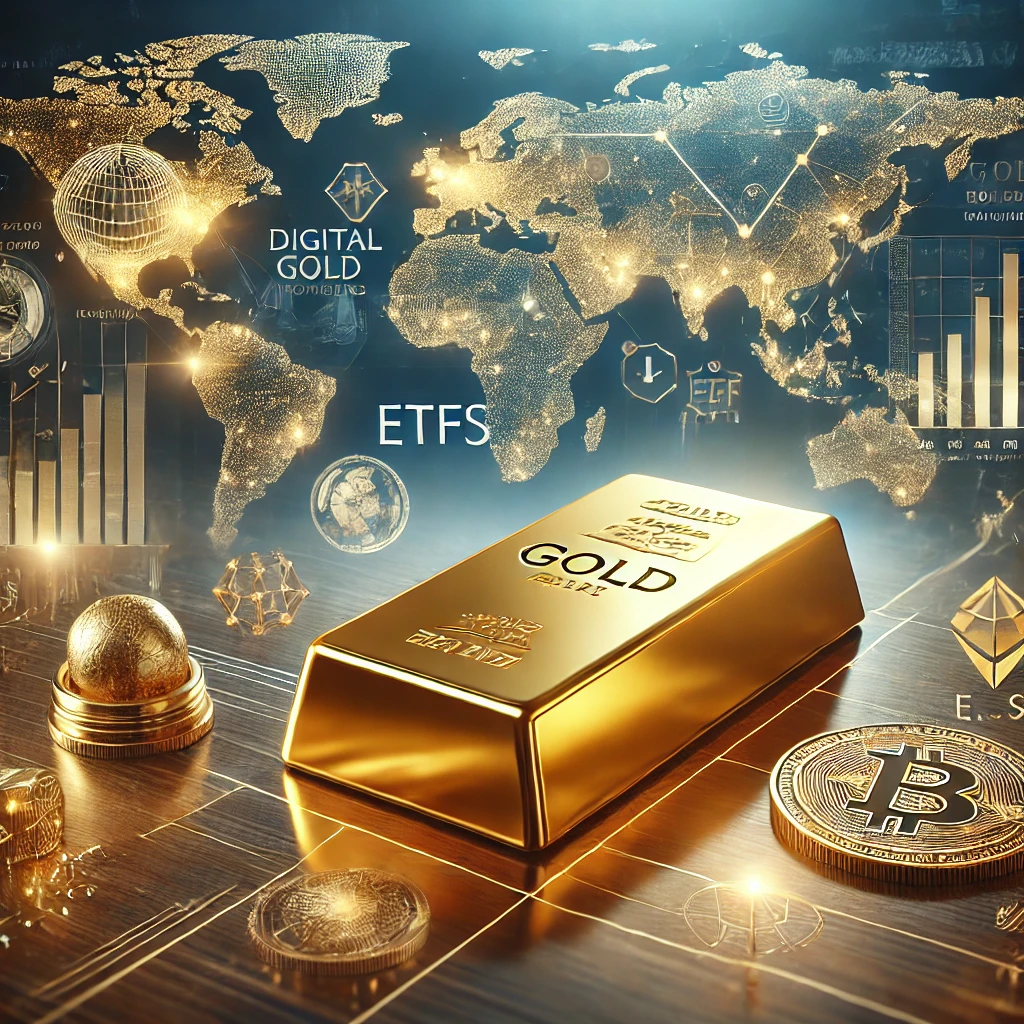Gold has always been a symbol of wealth and power, and today it's one of the most strategic assets that countries rely on to build their financial strength and maintain their economic influence on the world stage. While global economies are constantly changing, gold remains a key pillar that nations turn to for financial stability and protection against market ups and downs. Today, gold is more than just a shiny metal; it's a financial tool that nations use to navigate modern economic challenges.
Gold Reserves: How Countries Manage Them to Maintain Global Economic Influence
Gold reserves are an important part of any major country's financial game plan. When markets get shaky and traditional currencies start to act up, gold is the "safe haven" that provides stability and helps keep the value of the national currency in check. Countries use a variety of strategies to build their gold reserves, such as:
- Diversify assets: By mixing their assets with a combination of gold and foreign currencies, nations can reduce the risks of sudden market swings.
- Build gold reserves: Buying gold on a regular basis, especially during economic downturns or when political tensions are high, helps nations strengthen their financial position.
- Control global gold markets: Major players such as China, Russia, and the U.S. keep a close eye on gold production and trade, and invest in gold mines around the world to ensure a steady, reliable supply.
These strategies help nations maintain their economic power on a global scale. Gold gives them leverage in financial negotiations, strengthens their position during economic crises, and increases the stability of their local currencies.
Mining Technology: Innovative solutions to increase production while protecting the environment
Mining is a huge part of the economy and plays a key role in helping countries increase their gold reserves. But traditional mining methods come with environmental concerns and high costs. That's where modern technology comes in, offering smart solutions such as
- Smart exploration: Using AI and machine learning to analyze geological data helps companies find gold deposits more accurately, reducing exploration costs and increasing efficiency.
- Cleaner mining: Technological advances in mining have led to new methods that minimize the use of harmful chemicals and reduce carbon emissions, making gold mining safer and more environmentally friendly.
- Renewable energy investments: Using solar and wind energy to power remote mining sites reduces dependence on fossil fuels and improves production efficiency.
These technological solutions not only increase production, but also help countries and gold producers promote themselves as environmentally responsible by meeting global environmental standards.
Redefining Investment: How digital markets are changing the gold trade
The way people invest in gold has changed dramatically over the past decade, thanks to digital innovation. You don't have to stick to buying gold bars and coins anymore; new digital investment options are making it easier and more flexible for individuals and countries to get into gold.
- Digital Gold: Investors can now buy "digital gold tokens" that represent a specific amount of physical gold, giving them a more liquid, secure and convenient way to invest.
- Exchange Traded Funds (ETFs): These funds allow people to invest in gold without actually owning it. You can buy shares in a fund that holds large amounts of gold, making it easy to buy and sell whenever you want.
- Smart contracts and blockchain: This technology makes it possible to track the movement of gold and verify where it came from, improving transparency and security in gold trading and reducing the risk of counterfeiting.
These new investment tools have completely changed the way gold is traded and made it more accessible to everyone. Now individuals and nations can invest in gold without the hassle of buying and storing it the old-fashioned way.
Gold: Combining Traditional Strategies with Modern Innovations
Despite advances in technology and the rise of digital tools, gold remains an important part of global financial strategy. Major countries combine traditional approaches, such as holding large reserves of physical gold, with modern innovations that allow for more efficient and transparent production and trading. This combination is what keeps gold as one of the most important financial assets on the world stage.
Ultimately, whether it's increasing reserves, investing in cutting-edge technology, or reshaping commerce with digital markets, gold remains a solid foundation of economic power. By leveraging gold, major nations continue to assert their influence and ensure financial stability in a rapidly changing, unpredictable world.
